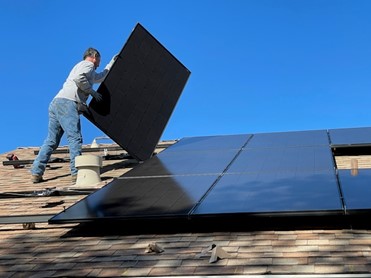In the face of climate change and environmental degradation, there is an urgent need to transition to a more sustainable and environmentally friendly economy. Green jobs play a crucial role in this transition by harnessing environmental solutions to drive economic growth, create employment opportunities, and build a more resilient and equitable society. In the following article, Ryan Calkins Port of Seattle explores the concept of green jobs, their importance in fostering sustainable development, and the potential they hold for addressing pressing environmental challenges while promoting economic prosperity.
What Are Green Jobs?
Green jobs are employment opportunities that contribute to environmental sustainability and address the challenges of climate change, resource depletion, and pollution. These jobs span a wide range of sectors and industries, including renewable energy, energy efficiency, waste management, sustainable agriculture, green construction, environmental conservation, and eco-tourism.
Unlike traditional employment opportunities that may have negative environmental impacts, green jobs focus on promoting sustainable practices, reducing carbon emissions, conserving natural resources, and protecting ecosystems. By prioritizing environmental sustainability and social responsibility, green jobs contribute to a more resilient and sustainable economy that benefits both people and the planet.
Driving Economic Growth
They also have the potential to drive economic growth and create new opportunities for employment, innovation, and investment. As governments, businesses, and communities increasingly prioritize sustainability and climate action, there is growing demand for skilled workers who can design, implement, and maintain green technologies and practices.
Investments in renewable energy, energy efficiency, green infrastructure, and environmental conservation not only create jobs in these sectors but also stimulate economic activity and promote innovation across the economy. Green industries such as solar energy, wind power, and electric vehicles have seen significant growth in recent years, generating thousands of jobs and attracting billions of dollars in investment.
Fostering Sustainable Development
These jobs play a key role in fostering sustainable development by promoting environmental stewardship, social equity, and economic prosperity. By investing in clean energy, sustainable transportation, green buildings, and natural resource management, countries can create pathways to inclusive and sustainable development that benefit people and the planet.
They also offer opportunities for social inclusion and empowerment, particularly for marginalized communities and vulnerable populations. By providing training, education, and employment opportunities in green industries, governments and organizations can empower individuals to build sustainable livelihoods, reduce poverty, and improve quality of life while protecting the environment.
Addressing Environmental Challenges
Green jobs are instrumental in addressing pressing environmental challenges such as climate change, air and water pollution, deforestation, and loss of biodiversity. By promoting renewable energy sources such as solar, wind, and hydropower, green jobs help reduce greenhouse gas emissions and mitigate the impacts of climate change on communities and ecosystems.
In addition to mitigating climate change, environmentally friendly jobs also contribute to improving air and water quality, conserving natural habitats, and restoring degraded ecosystems. Employment in environmental conservation, waste management, and sustainable agriculture play a vital role in preserving biodiversity, protecting ecosystems, and ensuring the long-term health and resilience of the planet.

Investing in the Future
As the world transitions to a low-carbon, sustainable economy, investments in green jobs are essential for building a more resilient and equitable future for all. By prioritizing environmental sustainability, governments, businesses, and communities can create a thriving green economy that generates prosperity, protects natural resources, and enhances quality of life for current and future generations.
Investments in green infrastructure, renewable energy, sustainable agriculture, and environmental conservation not only create jobs and stimulate economic growth but also provide long-term benefits in terms of energy security, public health, and environmental resilience. By embracing green jobs as a pathway to sustainable development, we can unlock the full potential of environmental solutions to drive economic prosperity and build a brighter, greener future for everyone.
Conclusion
Green jobs are not only essential for addressing environmental challenges but also for driving economic growth, fostering sustainable development, and building a more resilient and equitable society. By investing in green industries, promoting sustainable practices, and creating employment opportunities in environmental sectors, we can harness the power of environmental solutions to create a thriving green economy that benefits people, communities, and the planet. As we work towards a more sustainable future, green jobs will continue to play a critical role in shaping a world that is cleaner, healthier, and more prosperous for generations to come.
